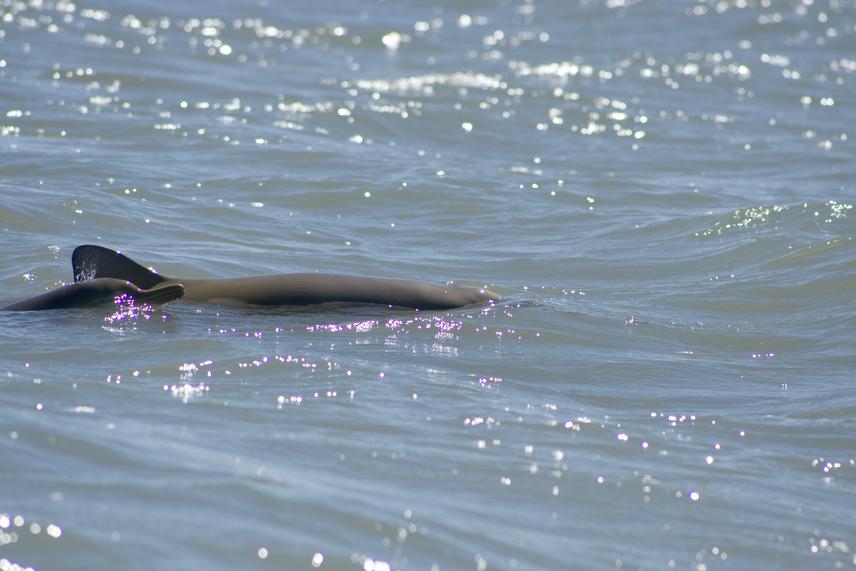Miguel Iniguez Bessega
Other projects
8 Jul 2014
Awareness-Raising, Eco-Tourism and Research: Conservation of Franciscana (Pontoporia blainvillei) and Bottlenose Dolphins (Tursiops truncatus) off Río Negro, Patagonia Argentina
This project aims to raise the profile of the marine environment among communities inhabiting the Río Negro Estuary to sustainably protect Franciscana and bottlenose dolphins from human-related threats.

Franciscanas. © L Russo Lacerna, Fundacion Cethus.
The Franciscana, the most threatened small cetacean in the Southwestern Atlantic, and the bottlenose dolphin, which is one of the most frequently observed and studied cetaceans in Argentinean coastal waters. There is little to no information on the distribution pattern of Franciscana in these waters, and no reliable estimate of their population sizes. This lack of data seriously inhibits any attempts to conserve the species in the long-term. Since the 1980s, research in Argentina has revealed a serious population decline of bottlenose dolphins and a progressive population fragmentation for the species in this part of the Southwest Atlantic, possibly limiting the gene flow needed for the long-term survival of small populations. A small migratory population in the RNE shows a similar trend.
Threats to marine life include a combination of unregulated local activities and fishery expansion -mostly recreational-, and lack of scientific evidence to define conservation requirements for the region's marine mammals. A more concerted effort needs to be made to help the implementation of effective conservation regimes, which must also take into account the economic needs of the local community.
Our overall aim is to reduce the threats facing Franciscana and bottlenose dolphins and their habitat, develop sustainable management measures and to protect this environment for future generations. We will do this by firstly understanding the biological and ecological needs of the species, through surveys and research. This will significantly increase our ability to inform and input into key local and national protection designations. Locally, we will look to strengthen community stewardship by undertaking several activities in key areas. These will include beach cleaning, a school talk’s programme and various workshops aimed at establishing a sustainable and responsible whale watching industry for local tourist guides. We will also work with stakeholders within the fishing community, getting local consensus in advocating for the establishment of a Regional Nature Reserve. We will achieve this through attending meetings with provincial and local authorities, gaining recognition for the diverse and important marine ecosystem that this area contains.